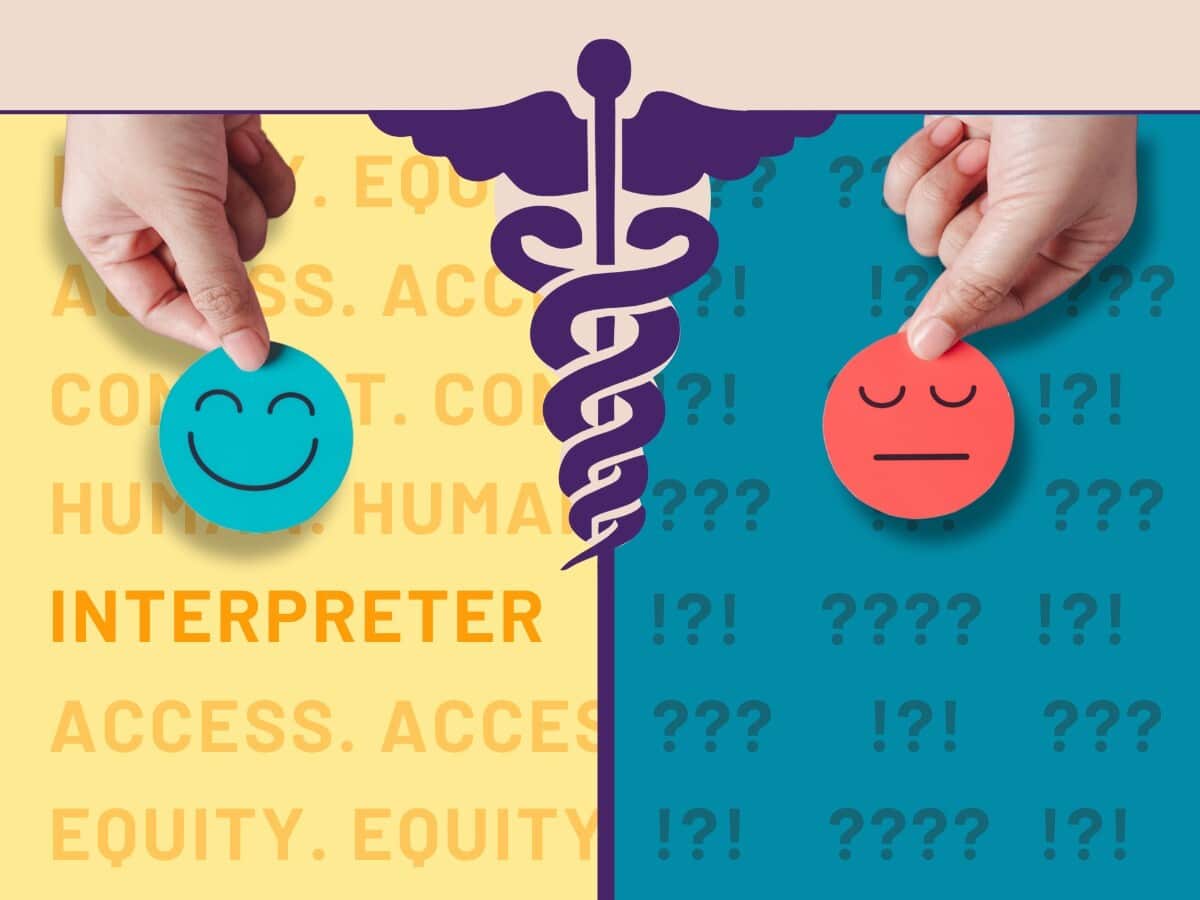Introduction: Urgent Care Interpreting
Interpreters are needed in many various locations and throughout every industry. However, they are especially crucial in urgent care settings. Urgent care interpreting is essential to ensure health equity for all patients through effective communication.
Imagine a patient with limited English proficiency (LEP) in an urgent medical situation. It is a weekend or after normal business hours, and they need to see a doctor for medicine, a cough, or a COVID-19 test. And yet, as soon as they arrive, it becomes clear that there is a lapse in communication between the patient and the nurses or doctors, who all speak a different language. What should be a quick, simple visit, can turn into a long, anxiety-inducing situation, where the patient is unable to easily get care. That is where urgent care interpreting comes in.
Medical interpreters who can interpret in urgent care settings are crucial for health equity among all patients. There are a multitude of reasons how urgent care interpreting can make an enormous difference in patient care. Let’s take a look now.
Clear Communication
Interpreting in an urgent care setting is important to facilitate clear and accurate communication between patients and healthcare professionals. Interpreters in this setting ensure that healthcare providers gain an accurate understanding of the patient’s symptoms and medical history, and make sure that the patient can fully understand their treatment plan moving forward. Without this clear and precise communication that interpreters can provide assistance to, medical errors could occur, which could lead to worse patient outcomes or even fatalities.
Cultural Competence
Cultural competence is a crucial aspect of urgent care interpreting. Interpreters play a vital role in bridging cultural gaps and ensuring that healthcare providers deliver respectful and culturally appropriate care to patients. They navigate cultural differences by understanding and respecting the diverse backgrounds and beliefs of patients. Interpreters provide culturally sensitive support by helping patients understand their rights, making informed decisions, and accessing appropriate healthcare resources. This cultural competence not only improves patient satisfaction but also fosters trust and enhances the overall quality of care in urgent care settings.
Patient Advocacy
Interpreters are there to interpret. However, their presence gives patients the trust and confidence to advocate for themselves and ensure their needs and concerns are properly conveyed and addressed. Additionally, interpreters serve as a valuable resource for patients by helping them understand their rights within the healthcare system and empowering them to make informed decisions about their healthcare journey.
Enhancing Quality of Care
Urgent care interpreting helps contribute to improved quality of care by facilitating accurate diagnosis, treatment, and follow-up care. heir presence enables healthcare professionals to deliver personalized and tailored care that meets the specific needs of each patient, leading to higher levels of patient satisfaction and ultimately impacting patient outcomes. With the assistance of interpreters, healthcare professionals can bridge language barriers and establish a strong rapport with patients, fostering trust and ensuring that patients feel heard and understood throughout their healthcare journey.
Emotional Support
Interpreters in urgent care settings not only provide language assistance but also offer essential emotional support to patients. They understand that being in a medical situation can be overwhelming, especially when there are language barriers. Interpreters offer reassurance, empathy, and compassionate communication to help ease patients' anxieties and fears. They listen attentively to patients' concerns, provide comfort, and ensure that patients feel heard and understood. By providing emotional support, interpreters play a crucial role in creating a supportive and caring environment for patients during their urgent care visits.
Confidentiality and Privacy
Confidentiality and privacy are of utmost importance in urgent care settings, and interpreters play a crucial role in upholding these principles. Interpreters understand the sensitive nature of medical information and are trained to maintain strict confidentiality. They adhere to professional ethics, ensuring that patient conversations and medical records remain confidential. Interpreters understand the importance of safeguarding patient privacy and take appropriate measures to protect it. By maintaining confidentiality and privacy, interpreters create a safe and trusted environment for patients to share their medical concerns and receive appropriate care.
Collaborative Teamwork
In urgent care settings, interpreters play a crucial role in collaborative teamwork to ensure effective communication and coordination of care. They work alongside doctors, nurses, and other staff members to bridge language barriers and facilitate seamless interactions with patients. Interpreters actively participate in medical discussions, assisting in understanding and conveying medical information accurately. They help healthcare professionals gather patient histories, explain diagnoses and treatment plans, and ensure that patients have a clear understanding of their healthcare journey. By fostering collaboration and teamwork, interpreters contribute to the overall quality of care and help create a patient-centered environment in urgent care facilities.
Professional Training and Certification
Professional training and certification are crucial aspects of urgent care interpreting. In order to provide high-quality interpretation services in a healthcare setting, interpreters must undergo specific training to acquire the necessary skills and knowledge. This training equips interpreters with the ability to accurately interpret complex medical terminology and concepts, understand healthcare protocols and procedures, and navigate sensitive and confidential information.
Certification further validates an interpreter's proficiency and expertise in the field of urgent care interpreting. It ensures that interpreters meet certain standards of professionalism, ethics, and language proficiency. By having qualified interpreters with proper training and certification, urgent care facilities can ensure that patients receive accurate and effective communication, leading to improved patient outcomes and a higher quality of care.
Conclusion
Urgent care interpreting can be critical in a healthcare setting. It is used to create health equity across the board, to reduce language barriers and improve patient care. Urgent care interpreting can make a huge, positive difference in not only the patient journey, but also improving patient satisfaction and patient outcomes.









